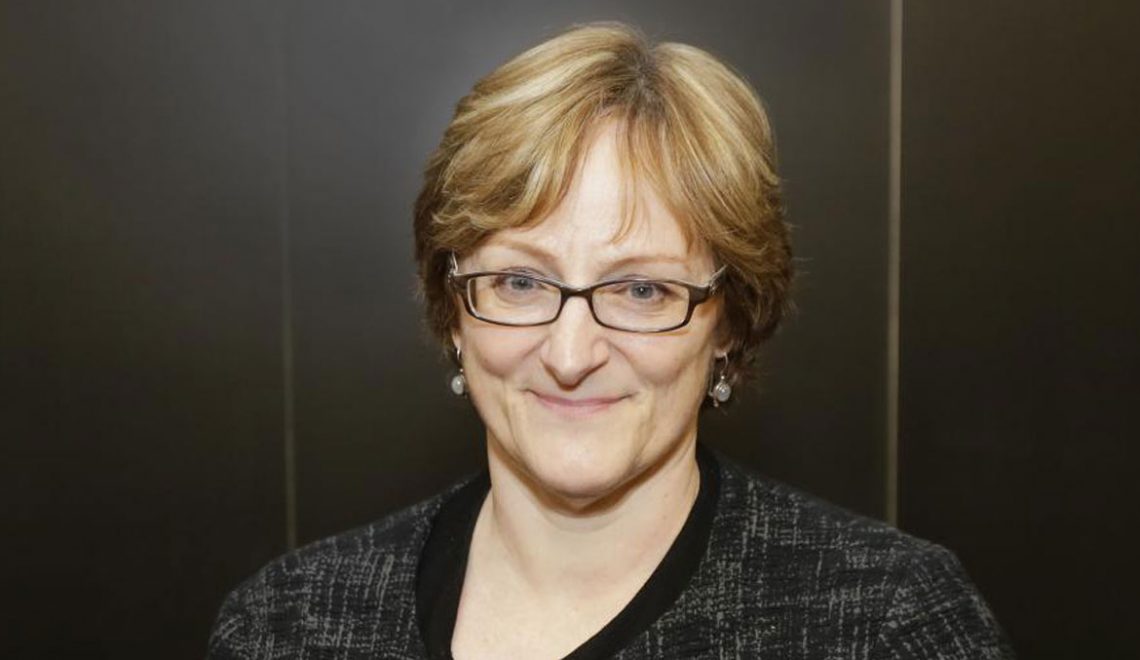
Athene Donald is Professor of Experimental Physics and Master of Churchill College at the University of Cambridge. In addition to that, she is a member of Royal Society Council, Project Director of the IOP’s Teaching Biological Physics project, a Trustee of the Science Museum Group and a member of the Scientific Council of the European Research Council. Furthermore, she was the University of Cambridge’s Gender Equality Champion; she has given numerous talks and won numerous awards, including the L’Oreal UNESCO for Women in Science award for Europe for 2009. In this interview, we have touched on a wide range of subjects from women in science to her favourite books, spoiler alert – one of them is Pride and Prejudice. It has been a pleasure to interview Athene and we hope you enjoy reading about her journey.
Introduction
Q: What is your dinner party monologue for when someone says “and what do you do?”
A: I work on soft matter physics, everyday things like food, paint and plastics. Most people then get curious about what a physicist has to do with food – and at a dinner party there’s plenty to illustrate what soft matter is.
Early Life
Q: Could you tell us about where you grew up; were you a rural or city dweller?
A: I grew up in London.
Q: What subject(s) did you excel at in school, and which did you find most challenging?
A: I was pretty good across the board, although my French accent was excruciating and I hated biology. This is a bit ironic given that I now work closely at the interface with biology.
Q: Can you recall any reoccurring comments from your school reports?
A: I was boringly competent so nothing obvious stuck out.
Q: Did you ever have a eureka moment where you thought, “this is the subject I want to study”?
A: I knew as soon as I was introduced to physics at around 13, I became convinced this was what I wanted to do. It felt as if it made sense of the world for me.
Q: Can you remember the point at which you fell in love with your subject?
A: I finally fell in love with research in physics – as opposed to doing it as the natural thing to do – during my second post-doc. By then I would have already been doing research for around 5 years and had grown not to love it at all. But as soon as I changed from working on metals to plastics it made all the difference. That was when I fell in love with what I was doing.
Academic Education
Regarding your undergraduate studies:
Q: Which University did you study at, and was it your first choice?
A: I attended Girton College at the University of Cambridge and yes it was my first choice.
Q: What undergraduate degree did you study for at University, and in hindsight would you select the same subject again?
A: In Cambridge I studied Natural Sciences, specialising in Theoretical Physics in my final year. I have no regrets.
Q: Can you remember a University lecturer who really inspired you?
A: I think the ones I recall best were the bad ones!
Regarding your postgraduate studies:
Q: What motivated you to further pursue academia?
A: Industry certainly didn’t appeal as I thought one simply became a small cog in a large wheel. I suspect I started off doing my PhD because I couldn’t think of a better alternative rather than as a very positive decision.
Q: What institution(s) did you study at in your pursuit of postgraduate education?
A: I stayed at Cambridge University.
Q: What was the title of your PhD thesis, and how would you explain your findings to a novice?
A: The title was ‘Electron Microscopy of Grain Boundary Embrittled Systems’. In this, I looked at the difference in the structure of the boundaries between grains of crystals in copper and its alloys with bismuth using a variety of different electron microscopy techniques. What I discovered showed the change in structure to boundaries with sharp facets in the presence of bismuth, although not why this change occurred.
Q: If you had your time as a student again, what would you do, if anything, differently?
A: I chose the project because I wanted to do something I believed was ‘applicable’. In that sense, I chose a good topic. However, I was a very clumsy experimenter at the start (I had specialised in theoretical not experimental physics in my degree). With hindsight, it is also clear that taking on a topic that required a good ability to visualise three-dimensional structures was a mistake, although I couldn’t have known that at the time.
Research Focus
Q: Tell us about your current research focus?
A: By this point, I am not really research active, as I am Master of a Cambridge College (Churchill College) and sit on many national and international committees. But the area that I was last involved with was cellular biophysics, using the tools of physics to study cell adhesion, division and migration.
Q: What do you believe is your single most important piece of research?
A: I think it isn’t so much a specific breakthrough, as contributing to the idea that it was OK, even exciting, for a physicist to work on biologically-based problems. When I set out doing this there was strong suspicion that biology was too messy, too complex for a physicist to be able to do anything rigorous (certainly within the UK community). I like to think my determination to continue in the face of these negative reactions contributed to the fact that now the field is seen as exciting and important.
Q: Within your area of study, what breakthroughs are on the horizon?
A: Developments in novel forms of optical microscopy, new imaging modalities, are opening up all sorts of new avenues that were previously inaccessible. I think our ability to explore single molecules in single cells – as opposed to averages over a Petri dish – will transform our understanding of cell machinery.
Q: Let your imagination take over for a minute and tell us what you hope your successors will be researching in 2116?
A: I hope the killer diseases will be better understood, but there is bound to be scope for improving the quality of life as we live longer, be it via regenerative medicine or helping with assisted living to retain independence. We are so far off these goals yet in most people’s lives.
Q: What do you feel your professional legacy will be?
A: I suspect I may be remembered as much as a visible female physicist who spoke up about the challenges of women in physics/STEM as for any specific piece of work. I was the first female professor in the physical sciences in Cambridge, and I was the University’s Gender Equality Champion for 4 years.
Current Projects
Q: Are you working on any extra-curricular projects at the moment, such as: books, podcasts, websites, or speaking?
A: I have a blog where I discuss what it’s like to work in science, encourage early career researchers, talk about science policy and much more and I also write occasionally for the mainstream media, including Guardian science blogs. I give a lot of talks for women in science, about getting involved in science policy and about careers in science in general. Also, as Master of Churchill College, I have many distinct responsibilities that are separate from my science.
Advice and Tips
Q: If you could give your 18-year-old self one piece of advice, what would it be?
A: Don’t be fooled by other people’s confident exterior: most people are nervous and uncertain whatever they look like on the outside.
Work out your strengths (and weaknesses) and don’t just follow the crowd.
Q: What advice would you give someone looking to start, or progress his or her career in your field?
A: Work out your strengths (and weaknesses) and don’t just follow the crowd. Being in a hot area of research isn’t necessarily the best place to shine, particularly if it doesn’t play to your own strengths.
Q: Which book would you say has had the biggest impact on your life?
A: Pride and Prejudice, because it never fails to cheer and restore mental balance when things go awry.
Q: If you could recommend one book to a novice in your field, what would it be?
A: The book that helped me understand how to think about materials in a non-mathematical way was The New Science of Strong Materials: Or Why You Don’t Fall Through the Floor by J.E.Gordon. It’s old now, first published in 1968 (and still in print), but remains a good introduction.
Q: Why do you think being a freethinker is important?
A: We all need to think outside the box to be creative and innovative.
Conclusion
Q: And finally, we are back at the dinner party. Someone offers you a drink, what do you ask for?
A: A glass of Merlot.
If you’d like to find out more about Professor Dame Athene Donald you can check out her academic profile, Twitter page, personal website and Wikipedia page.
Feature photo By Edwardx (Own work) [CC BY-SA 3.0], via Wikimedia Commons.
Advertisement









